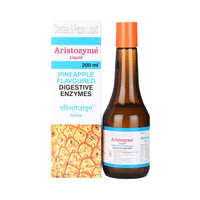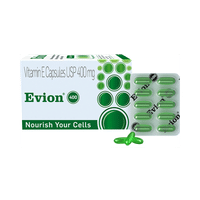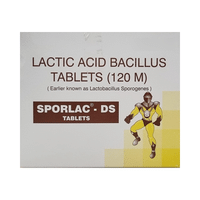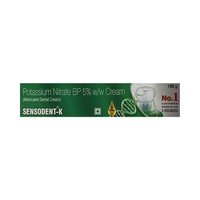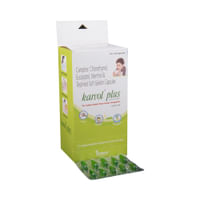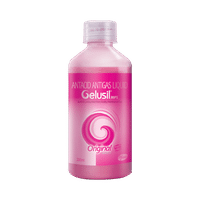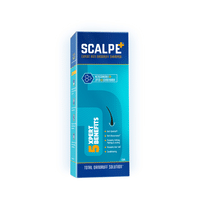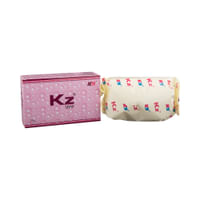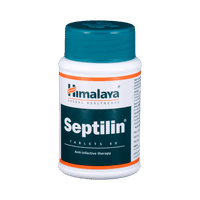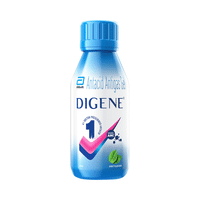Beclomate EG Cream
Rs.29.10for 1 tube(s) (10 gm Cream each)
food interaction for Beclomate EG
alcohol interaction for Beclomate EG
pregnancy interaction for Beclomate EG
lactation interaction for Beclomate EG
medicine interaction for Beclomate EG
food
alcohol
pregnancy
lactation
medicine
No interaction found/established
No interaction found/established
Beclomate EG Cream is unsafe to use during pregnancy as there is definite evidence of risk to the developing baby. However, the doctor may rarely prescribe it in some life-threatening situations if the benefits are more than the potential risks. Please consult your doctor.
CONSULT YOUR DOCTOR
Beclomate EG Cream is probably safe to use during breastfeeding. Limited human data suggests that the drug does not represent any significant risk to the baby.
SAFE IF PRESCRIBED
No interaction found/established
SALT INFORMATION FOR Beclomate EG
Beclometasone(1%)
Uses
Beclometasone is used in the treatment of asthma.
How it works
Beclometasone is a steroid which works by blocking the production of certain chemical messengers in the body that cause inflammation (redness and swelling) and allergies.
Common side effects
Hoarseness of voice, Headache, Breathlessness, Nausea, Itching, Erythema (skin redness), Thrush, Pharyngitis, Abnormal taste, Nasopharyngeal irritation, Application site irritation, Application site burning, Rash, Urticaria, Vertigo, Blurred vision, Angioedema (swelling of deeper layers of skin), Allergic reaction, Paradoxical bronchospasm, Cushing syndrome, Anxiety, Hyperactivity, Nasal ulceration
Econazole(0.025%)
Uses
Econazole is used in the treatment of fungal infections.
How it works
Econazole is an antifungal medication. It kills and stops the growth of the fungi by destroying its cell membrane, thereby treating your skin infection.
Common side effects
Itching, Erythema (skin redness), Burning sensation, Stinging sensation
Gentamicin(0.1%)
Uses
Gentamicin is used in the treatment of bacterial infections.
How it works
Gentamicin is an antibiotic. It stops bacterial growth by preventing synthesis of essential proteins required by bacteria to carry out vital functions.
Common side effects
Hearing loss, Joint pain, Headache, Breathlessness, Vomiting, Nausea, Fever, High blood pressure, Edema (swelling), Thrombophlebitis, Confusion, Depression, Drowsiness, Lethargy, Myasthenia gravis, Numbness, Paresthesia (tingling or pricking sensation), Peripheral neuropathy (tingling and numbness of feet and hand), Seizure, Vertigo, Hair loss, Urticaria, Decreased calcium level in blood, Weight loss, Clostridium difficile associated diarrhea, Decreased appetite, Enterocolitis, Urinary casts, Low urine output, Protein in urine, Renal toxicity, Agranulocytosis (deficiency of granulocytes in the blood), Anemia (low number of red blood cells), Hepatomegaly (enlarged liver), Increased liver enzymes, Hypersensitivity, Muscle cramp, Muscle weakness, Visual disturbance, Ringing in ear, Decreased creatinine clearance, Respiratory depression, Increased reticulocytes, Low blood platelets, Pulmonary fibrosis, Enlarged spleen, Laryngeal edema, Gastrointestinal bleeding
SUBSTITUTES FOR Beclomate EG
No substitutes foundExpert advice FOR Beclomate EG
- Beclometasone helps treat inflammation, severe allergies, flare-ups of ongoing illnesses, and many other medical problems that require either reduction of inflammation or suppression of the immune system.
- Do not use it more often or for longer than advised by your doctor.
- Take it with food to avoid an upset stomach.
- Beclometasone can make it harder for you to fight off infections. Notify your doctor if you have any signs of infection such as a fever or sore throat.
- Side effects such as mood changes or stomach problems can happen when you start taking Beclometasone. Inform your doctor if this bothers you.
- Do not stop taking Beclometasone suddenly without talking to your doctor first as it may worsen your symptoms.
Frequently asked questions FOR Beclomate EG
Beclometasone
Q. What is thrush? Can Beclometasone cause thrush?
Thrush is a fungal infection of the nose and throat caused by candida. Beclometasone can cause thrush as a common side effect. To avoid getting fungal infections, you should thoroughly rinse your mouth after using a nasal spray. If you experience any redness or white colored patches in your nose or mouth, inform your doctor.
Q. How does Beclometasone work?
Beclometasone is a corticosteroid, which works by decreasing the inflammation caused by allergies. It reduces inflammation by blocking the release of certain natural substances that cause allergic symptoms such as swelling, redness and pain.
Q. How long does Beclometasone take to start working?
The time required by Beclometasone to start showing its effects may differ from person to person. Usually, it starts showing relief within 8 hours of starting Beclometasone. It may even take several days before you see maximum benefits. In order to improve your symptoms faster, it is important to take the medicine regularly as it increases efficiency of the medicine.
Econazole
Q. What is Econazole? What is it used for?
Econazole is an antifungal medicine applied on the skin to treat superficial fungal infections. It can be used in fungal infections caused by dermatophytes (fungus causing ringworm like infections) and yeast. Econazole acts by preventing the growth of the fungus by stopping formation of essential components of fungal membrane responsible for structural and functional changes leading to abnormal cell wall synthesis, hence halting the growth of the fungal infection.
Q. How to use Econazole?
Before using Econazole, clean and dry the affected area. Gently and thoroughly massage it into the skin. Be careful not to get the medication in your eyes or mouth. If Econazole gets in your eyes accidentally, wash with plenty of water and call your doctor if your eyes are irritated.
Q. My itching is gone, so can I stop using Econazole?
You must complete the course of treatment even if the irritation is gone. Econazole is an antifungal medication and treats fungal infections of the skin. In fungal infection of the skin, the fungus stays in the layers of the skin. So, even though the medication may clear the symptoms in a few days, the infection can be present in deeper layers of the skin. You may need to keep applying this medicine for 4-6 weeks.
Gentamicin
Q. What is Gentamicin? What is it used for?
Gentamicin is an antibiotic used to treat bacterial skin infections. It may also be used to treat infected cuts and wounds. Gentamicin stops the growth of bacteria, which helps to resolve the symptoms.
Q. Is Gentamicin effective?
Gentamicin is effective if used in the dose and duration advised by your doctor. Do not stop taking it even if you see improvement in your condition. If you stop using Gentamicin too early, the symptoms may return or worsen.
Q. How to use Gentamicin?
Before using Gentamicin, clean and dry the affected area. Gently and thoroughly massage it into the skin. Be careful not to get the medication in your eyes or mouth. If Gentamicin gets in your eyes accidentally, wash with plenty of water and call your doctor if your eyes are irritated.













